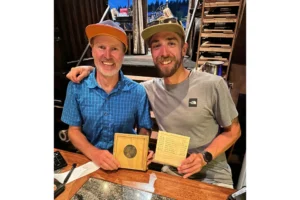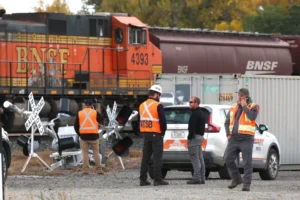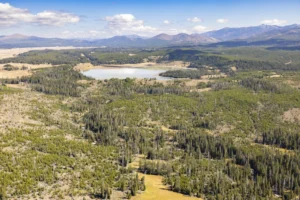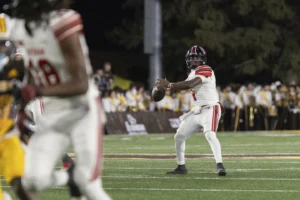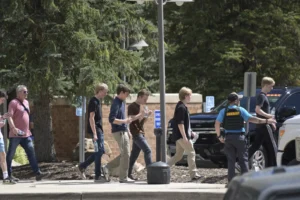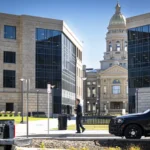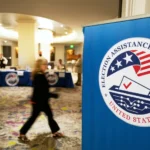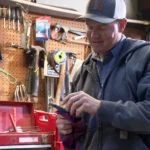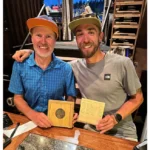Abortion Politics
- Published In: Other News & Features
- Last Updated: Jul 15, 2022
By Cassie Craven
Special to the Wyoming Truth
The U.S. Supreme Court’s recent decision in the Dobbs case overturning Roe v. Wade and the reaction from our country hits me hard. In a time of mass confusion, partisanship and economic struggle, I often wonder what sort of future I leave for my little ones. While many people decry the abortion decision as an infringement on personal freedom, privacy and healthcare access, others are quick with a retort and little empathy in Wyoming, a “pro-life” red state, where a vote that is out of line may get you unelected in short order. The abortion issue is more complicated for a woman like me who considers herself conservative, but has always found this issue tricky—and more complex than it seems on the surface.
Just to be clear, what I am saying here is my opinion on a polarizing topic.
First, we need to get our facts straight to have a conversation about the recent court decision. Our highest court ruled that it did not have the authority under federal law to strike down Mississippi’s 15-week abortion law. In short, the high court just told us that we are stuck with the ruling of our state government; the court cannot overrule the state on this issue, in this instance. But did the court outlaw abortion? No.
Mississippi’s Gestational Age Act provides that “[e]xcept in a medical emergency or the case of a severe fetal abnormality, a person shall not intentionally or knowingly perform . . . or induce an abortion of an unborn human being if the probable gestational age of the unborn human being has been determined to be greater than fifteen (15) weeks.”
The court summarized: “The Constitution does not confer a right to abortion; Roe and Casey are overruled, and the authority to regulate abortion is returned to the people and their elected representatives.”
The crux of the Dobbs case is that the Supreme Court returned power to the people through their direct voice and vote. Abortion is now a state issue, where the outcome of local races will determine the future of abortion policy. The accountability for a woman’s health, access and freedom has been pushed locally where we can see it and where our voices can be heard. The high court’s decision should be viewed as a victory for states’ rights and accountability, not a defeat. I am not advocating this as a position; it is the decision of the high court and is the law of the land.
House Bill 92, the so-called “trigger bill” passed in the last legislative session, prohibits abortion in Wyoming except in the case of incest, rape or when the mother’s life is at risk. It is up to Gov. Mark Gordon to certify it and make it legal.
What do we do now? Governors must lead on this issue. Legislatures must serve families across our country. Any woman faced with the decision about terminating a pregnancy will not walk down an easy road. Empathy and services must surround this conversation, but instead and too often, it becomes little more than a convenient partisan line to draw. This will not change unless we make a conscious effort on all sides to do so. We must understand that pro-life advocates truly believe they are protecting the voiceless and most vulnerable among us. And the pro-choice advocates must realize that women are often scared and alone in impossible situations with miserable consequences no matter what they choose. As a conservative myself, I believe that we all must understand that these women feel that overnight, with this court decision, they were told that their own lives don’t matter. We must listen to their arguments. But most importantly, we must listen to their needs and address them head on.
It is easy to only care about what you think is right or wrong. It is more difficult for us to think about those instances (rape, incest, life of mother) and how we may be able to assist such a situation with responsible policy. It doesn’t matter if you are conservative or liberal. Every woman, who is tender with life, deserves privacy and care, integrity and compassion, health and safety and ease and peace of mind. Why can’t states fund more services for mothers grappling with these difficult decisions?
If you are a Wyoming legislator facing a vote on life-related issues, I’d like you to broaden your perspective of what that actually means for people and consider the following questions and their consequences:
• Why don’t pregnant mothers receive an increase in their welfare allowance during pregnancy?
• Why is adopting a child so challenging, time-consuming and expensive?
• Why doesn’t every state have a law on the books for a double homicide when a pregnant woman is murdered?
• Why aren’t child support and health care coverage required from the date of conception?
• Why don’t mothers receive life insurance from stillbirths or miscarriages?
• How will we now regulate IVF procedures as a state?
These questions should be answered and policy changes should be made to support all lives in the equation. For me, the problem isn’t that I lost all my rights to privacy and control of my body overnight with the overturning for Roe v. Wade. No, the problem for me is that there is no room for logic or empathy in this conversation anymore. It is too messy and politically charged to get to real problems and solutions. We need them now. Unfortunately, politicians seem more concerned about who appears to be the most liberal or the most conservative, rather than developing real policy solutions for women in an impossible situation.
When I found out I was pregnant, I cried tears of joy. If we want to be respected and have our positions heard, we must listen to the pains of others. I know many women who had abortions and are haunted by the experience. Even some who felt it was murder, but also felt, for a variety of reasons, that they had no choice but to terminate their pregnancies. Some regret it; others do not. While I may not have walked their walk, I can understand how it was never my choice to make for them and the life inside of them. In Wyoming, we need policies that support the life we so proudly proclaim to believe in while never casting down God-given free will.
Free will and love are all that we were given—the rest we create. As a state, let’s create some answers for all humans.

